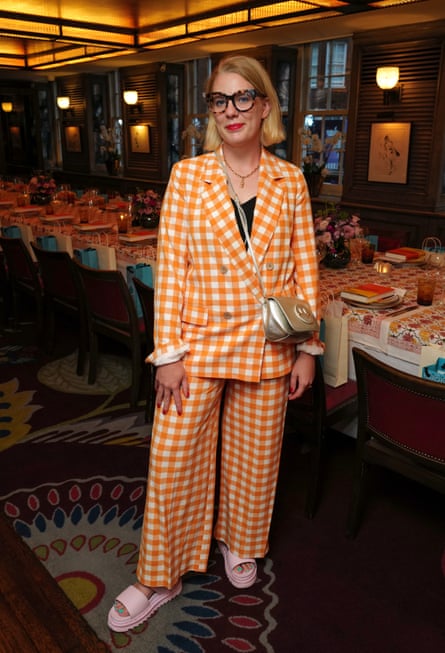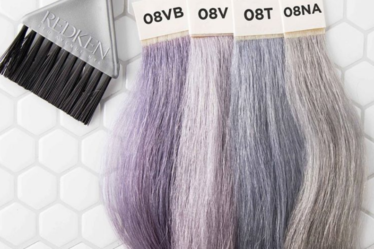
A friend came over for dinner recently and brought her newborn daughter. She was adorable, giggling, drooling and kicking her legs with gusto (the baby, not my friend). My husband and I are very open about the fact that we don’t want to have children. I am child-free by choice, and it feels like an important distinction to make: I have never tried to get pregnant, and I have no idea how my body would work – or not work – in that department. It will probably always remain a mystery. It means that my friends with kids tend to give me the honest truth about their parenting life. There’s no pretending things are better or worse than they are and I feel privileged to witness the good, the bad and the ugly. My friend told me her baby was sleeping like an absolute dream – and that she probably isn’t going to share that with any of the pals she made at antenatal class.
But, in between feeding her daughter under her T-shirt and feeding herself ad-hoc mouthfuls from her dinner plate, she also said something that stuck with me: “One of the most amazing things about being a parent is getting to relive life through her eyes.” She then reeled off some of the many things she was looking forward to: the first missing tooth (and first visit from the tooth fairy), the first birthday party, the first day at school, the first girlfriend/boyfriend/partner. Another friend explained a feeling of “secondhand excitement” at going to Peppa Pig World with her toddler – a throwback to her own thrill at going to theme parks with her parents as a child. The circle of life and all that.
I’ve realised recently the reality of my situation: I will never have these milestones that come with having children. Even though I am sure I don’t want kids, a period of existential worry has crept up on me – the feeling that I’ve somehow already ticked off life’s big moments.
Last year I got married (tick!) and I bought a house (tick!), but then there was a feeling of: what next? I was haunted by a conversation I had with a woman who worked at a beauty counter who, as she applied wax to my eyebrows, asked me if I had children. When I replied no (and that I don’t think I want to have them), she said: “I hope you have enough to fill your life with. Life is very long.”
Do I have enough to fill my life with? Yes, I believe so. But also, like most people, I need things to chase, to do, to look forward to. I realised I needed to map out some non-traditional ways to keep moving forwards.
“We assume happiness lies in events in the future, but, actually, how we spend our time and the things we do every day tend to have a far more powerful impact on how we feel overall,” says clinical psychologist Emma Hepburn, the author of A Toolkit for Your Emotions. “This is why it’s important to ensure we do lots of small daily things that are good for our wellbeing, or regular, smaller things that make us feel good that we can look forward to.”
The ideas below are not exclusively for child-free people but I have found it helpful to have them in my back pocket, especially when the future can feel unmoored.
Make your dream travel list
I have started an epic list of places to go and things to see. The locations vary from big adventures to wild swimming spots to farms in Scotland and small boat trips. It feels so good to write down these ideas and locations even if, financially or logistically, they’re not possible now or in the near future. It’s uplifting to think of each trip as a future milestone.
Lean into the freedom that doing these trips alone might bring, too. The number of people searching for “solo travel” has almost doubled since five years ago, and bookings for child-free holidays and hotels are booming. It seems there are a lot of us who want a relaxing and tranquil environment, where the focus can be on resting and resetting. There are also travel groups, such as Flash Pack, that design adventure holidays for people going on their own, with the chance to meet new people and socialise if you want to.
Measure your life in knowledge
For people like me, who are feeling a bit “stuck”, the motivational speaker Mel Robbins suggests taking up a class in something new can give you a sense of momentum. The pandemic saw a rise in people exploring courses, virtual classes and hobbies. Think about how much time you will have over the years to learn new things. Not sure where to start? Robbins suggests journalling to give you some clarity about who you are.
Look beyond family
For Ruby Warrington, the author of Women Without Kids, the only “milestones” women without children are allowed are seemingly “menopause, retirement and death”. Why not create new ones that don’t centre on a traditional family unit? She has plans for her 50th birthday party – a villa in Ibiza where she can enjoy spending time with her friends. Use these calendar moments to bring the people in your life together. Being child-free, she says, helps her to experience “life more as one long, ever-evolving moment that will bring all sorts of challenges and shifts and opportunities”, rather than, as Hepburn says, waiting for the big events that don’t really make us as happy as we think they will.
Build purpose
Celebrating your life for how you can help others can be really powerful. Farrah Storr, the author of the Things Worth Knowing newsletter, says she wants to use the time that might have been filled raising children to help grow other things she cares about. “When I put the idea of motherhood to rest,” she says, “I joined the Social Mobility Commission, where, ironically, I specialised in looking at the lives of young children and their life outcomes. When that came to its end, I became a trustee of the National Theatre, since I’ve always cared deeply about live performance and its impact on society.” When that ends, she intends to support “another cause I feel strongly about”.
Have a celebration day of your own
In 1999, the writer Julia Cameron published The Artist’s Date Book, which argued for the idea of connecting with your creative self through a once-weekly festive expedition somewhere.
“When choosing an Artist Date, it is good to ask yourself, ‘What sounds fun?’ – and then allow yourself to try it,” she wrote. Given there are days that celebrate parents and children (as there should be) – baby showers, Mother’s and Father’s Days – why not have a regular day that just celebrates you? It could simply be a fancy breakfast or a barbecue with friends – just because.
Nurture new friendships
My husband turned to me the other day and said: “We may have to find some more child-free friends.” We live very different lives from our friends with kids, although we still love spending time with all of them.
When you’re a child-free woman in your 30s, you find yourself suddenly realising that your friends have disappeared: they are either focusing on trying for a baby, pregnant, raising a newborn, or in the throes of domestic life with toddlers or older kids. Making new friends is one of life’s loveliest surprises – especially intergenerational friendships. I have friends in their 20s who are available for impromptu plans, fun holidays and occasional nights out.
I have older friends, too. One is in her 60s and, as we are both flexible, we are free to meet for coffees much more regularly than many parent pals would be. Every time we meet I learn something new: a piece of life wisdom, a delicious recipe, a tip for how to fix something in the house.
Friendships can come in so many different shapes and sizes, and they don’t have to be pressurised: they can be fluid and flexible and ever-changing. Distant friends are likely to come back to you one day, too.



